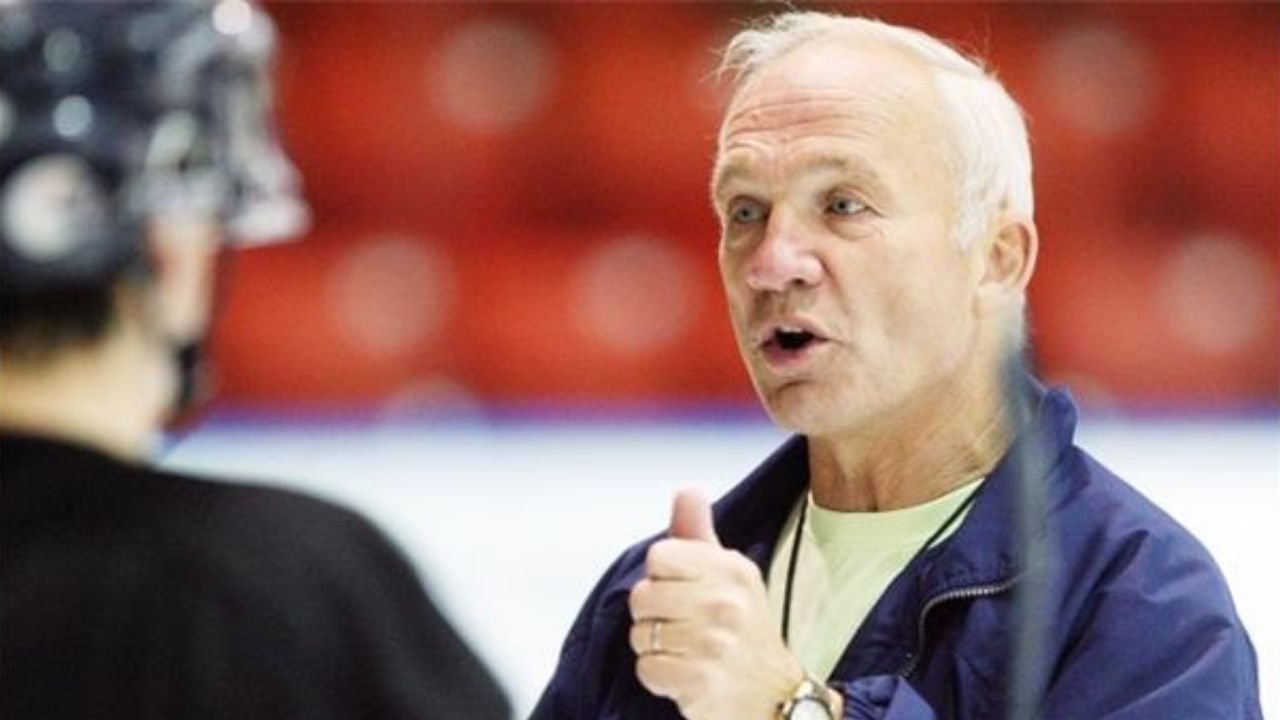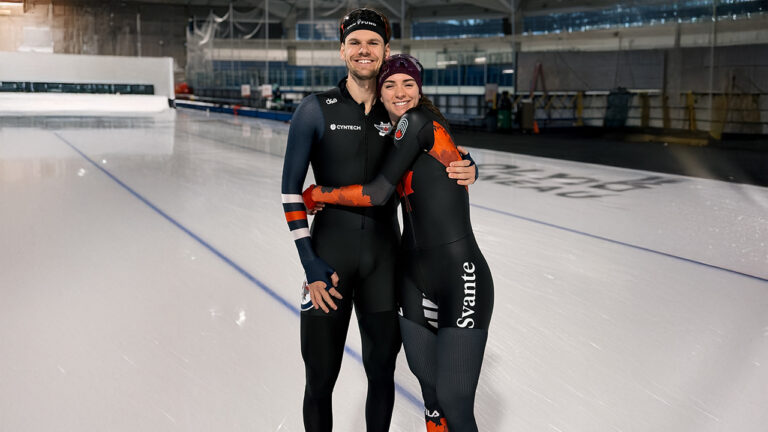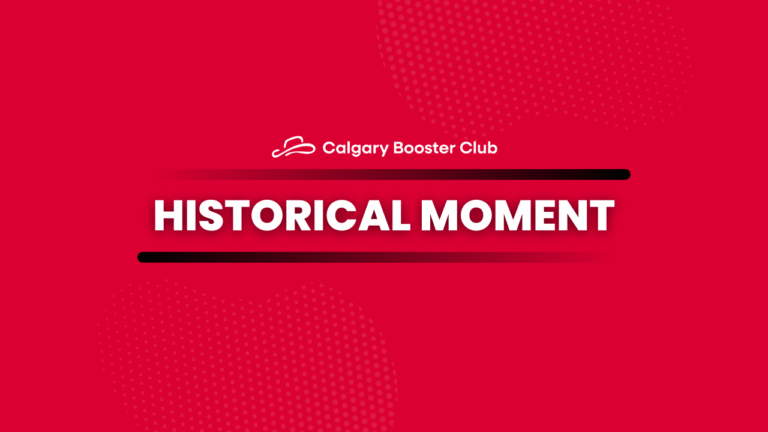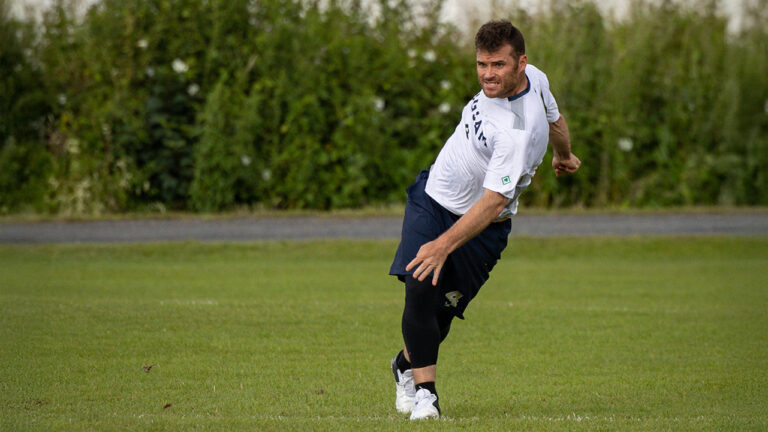The old coach is perched on the edge of a patio chair in the meticulously maintained backyard of the Marlborough home that he and his wife Rita have owned for 52 years.
Leaning forward, Don Phelps tells his visitor that retirement is leaving him a tad stale.
Sure, there’s the garden, which features a koi pond, to oversee. The two-car garage he built is pin neat and will stay that way.
To keep his back loose, Phelps goes to yoga classes twice weekly. As someone with a dozen marathons under his belt, he jogs occasionally. And when his ankles and knees begin to bark, he switches to low-impact workouts.
During the summer he cuts the grass at five nearby homes. “Because the people that live there, most of them are older than me — and I’m 75.”
According to Rita, her husband leashes up their little dog, Piper, three times a day. She’s joking. Kind of. “He can’t sit still,” she said. “To this day, he can’t sit still.”
Evenings he watches the New York Yankees, but only because Rita is a massive fan.
But — after dedicating a quarter-century to the Calgary Canucks, after assistant-managing McMahon Stadium for nearly 40 years — there are not enough chores and ball games to fill the massive hole in his day.
“I haven’t really grasped anything to do now,” said Phelps, looking tan and fit. “I haven’t been able to grab anything constructive. It’s frustrating, I’m not going to kid you. Every morning I get up and I grab this thing” — jabbing a finger at Piper — “and I walk out to Elliston Park. There’s a lake there and I walk around that and I say hello to people. I need it.”
The 2010-11 campaign had been his last with the Canucks. His final shift at the stadium was two years ago. Those jobs consumed him.
“When I was at McMahon — and with hockey — I dealt with everything,” he said. “Then, all of a sudden, whoa, it’s been an adjustment. I guess I’m looking for things to do. That would be a better way to put it. Because I haven’t done much specifically.”
Perhaps it’s the time of year that starts Phelps down a contemplative road.
In the autumn, typically, he would be ushering the juniors into a fresh season, he would be supervising the Calgary Stampeders’ home through another stretch drive.
Not anymore.
But Phelps is hatching a plan — a surefire way out of his doldrums. Four times the AJHL’s coach of the year, he wants a chance to impart his wisdom to up-and-coming bench bosses. He’d love to serve as a mentor on the local scene.
He acknowledges that his resume is not fortified by multiple levels of certification from Hockey Alberta and Hockey Canada. So his qualifications — on paper — may appear to be lacking.
“I still think I can contribute something,” said Phelps, the Calgary Booster Club’s 1998 Sportsperson of the Year. “Maybe on an informal basis saying, ‘OK, your team’s struggling, your players don’t seem happy. Let me help you.’ With all due respect (to the sport’s organizing bodies), experience is the best teacher. You can read about it, but until you’ve lived it …
“There’s a lot of things that I can share with young coaches that’s going to save their bacon, that’s going to help them.”
Just to be clear, this is not a desperate scheme to trade on his good name, to squeeze a few nickels out of hockey. This is a gentleman keen to make even more contributions.
According to the website of the Alberta Sports Hall of Fame (where Phelps was inducted seven years ago): “He coached more than 2,000 games and won more than 1,000 games.”
Here then is another round number worth considering. Gross hockey income, $0.
Yes, all of that goodness? Entirely as a volunteer.
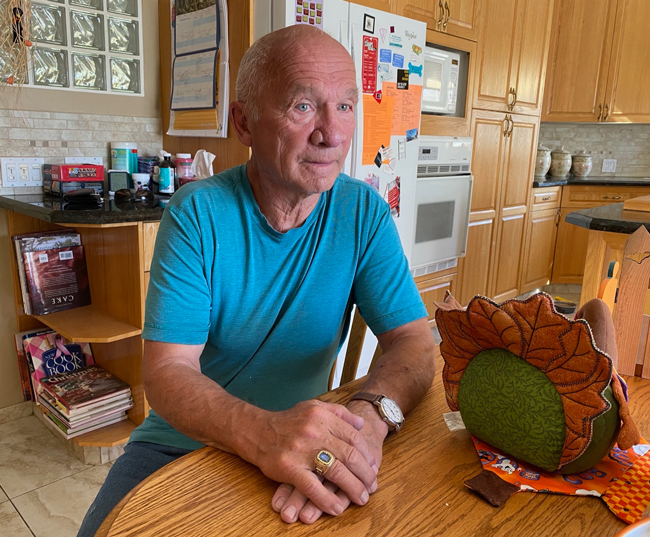
Before becoming Coach Phelps, he had been a little left-wing whiz out of Tuxedo Park.
As captain of the Calgary (Junior A) Buffaloes, he skated alongside Garry Unger.
Graduating to the Drumheller (Senior A) Miners had been a thrill. Professionals he had watched at the Stampede Corral — the likes of Sid Finney, Al Rollins, Ron Leopold — were now teammates. He got to know his heroes. Tuesdays and Thursdays, they would travel from Calgary to Drumheller — for practices.
“That’s commitment,” said Phelps, who, as the rookie, got saddled with the driving chores. “You have to love the sport to do that. I learned a lot about hockey, a lot about life, in the time I spent with those guys.”
Drumheller, as it happens, is also where he met a school teacher named Rita. They married in 1969. A year later, the couple moved into a brand-new home in northeast Calgary. “We’ve been here forever,” said Phelps, who commuted to Drumheller for a couple more seasons before hanging up his skates.
Their twins, Jeff and Jenn, arrived in 1973. A workaday existence awaited Phelps, who’d picked up his plumbing ticket.
Hockey, however, was not done with him.
Phelps was offered the reins of the Northeast Athletic Association’s Midget AA outfit. The first ice time took place at Henry Viney Arena. He scribbled a practice plan onto a card. “It seemed to work well.”
After two years with the midgets, his phone rang. On the line was Drumheller businessman Jack Samuel, who owned a plumbing operation and ran the AJHL’s Falcons. Would Phelps be interested in twisting pipes — and doing a little coaching on the side?
Well, why not? “But it was chaos,” Phelps said. “They used to practise in the middle of the day, at 12 o’clock, so you’d pull the kids out of school.” Then, after the skate, he’d pocket the whistle, grab his toolbox and rush away to plumbing assignments.
The Falcons, however, were terrific, roaring all the way to the 1975 league championship series. They fell in seven games to the Spruce Grove Mets, who were coached by Doug Messier (father of you-know-who).
As a defenceman back in the day, Messier had been an intimidating presence. “And his team played the same way,” said Phelps. “You’re trying to teach these kids values. And you’re playing someone over here who’ll do whatever to win. I thought he took it a little too far.”
Both sides were recognized.
Messier and the Mets won the Centennial Cup, while the AJHL’s coach of the year award went to Falcons’ rookie skipper, then 28 years old.
Soon to be father of a third child — Dan arrived in 1977 — Phelps would guide only Calgary teams for the rest of his career.
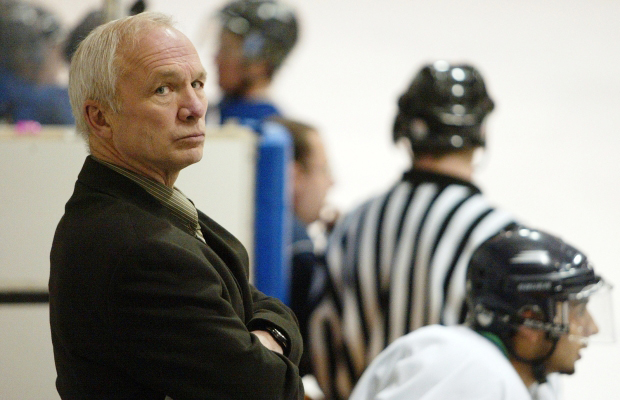
You’re not a coach till you’ve been fired. At least, that’s what they say.
It’s such an unstable occupation, at the mercy of the whims of others, that there’s no possible peace of mind. Walking the plank is an expected part of the racket.
It happens to everyone — unless you’re Phelps.
Then again it’s hard to get pink-slipped when you’re not being paid. But there had been no griping about shouldering the duties on a volunteer basis for a community-owned club.
Phelps claims the arrangement actually allowed him to be a better coach — to keep his motivation pure, to make the proper decisions, to prioritize the players’ well-being.
“If you’re going to get fired unless you win, you’re going to do everything you can to win,” he said. “Sometimes that cuts into what you’re doing, in terms of values.”
By name, he credits Ken Bracko, who operated the Canucks (and was named the Calgary Booster Club’s 2014 Sportsperson of the Year). He died in August 2015.
“He’s one of the reasons I was so successful,” said Phelps, who, after taking over in 1985, soon became the face of the franchise. “It was, ‘Look after these kids. I want you, Don, to make these kids better people and have fun doing it.’ If you were hired to coach the Weyburn Red Wings and you lost seven in a row, you don’t have a job anymore. But I didn’t have that pressure at all.
“You cannot measure success at the junior level in wins and losses. There’s too much more there.”
The bulk of his roster had been Calgarians, products of the city’s quadrant system. And when he wanted to recruit a hotshot, this is what he told his parents: “My goal is to get rid of him.”
He laughs, recalling the shocked looks he’d receive. As Phelps would explain to Mom and Dad, he had no interest in milking three or four winters out of their son. He’d rather help him prepare, athletically and academically, for a college scholarship. And if the boy manages to rise to that level in a single year? “You’re gone.”
The Canucks’ reputation, in that regard, speaks for itself. Plenty of NCAA attention, plenty of NCAA offers. “That was the beauty of what we were able to do.”
Which isn’t to say Phelps paid no heed to the standings.
There was regular-season glory —seasons featuring records of 51-9-0 and 50-8-4 — and five league titles.
And, of course, the national championship in 1995.
Along the way were three more nods as AJHL coach of the year.
“I loved to coach, but I never looked at it as an opportunity for a career,” said Phelps. “I had a couple offers to go to the Western Hockey League. Respectfully, I had to say no. It scared me because of the uncertainty. If they don’t like me after two years, then what am I doing? I just couldn’t do it.
“Rita and I just said, ‘OK, coach at the highest level that you can, but be responsible and have a job.'”
McMahon, back then, had no in-house trades people. Impressed by Phelps when he made repair visits, stadium manager Stan Schwartz hired him in 1986. “I have to say I loved my job,” said Phelps.
And, because the pace there was slower during the winter months, he was able to find time to really lean into the everyday workings of the Canucks.
“You have years when you win championships and years when you struggle,” said Phelps. “I enjoyed almost every minute driving down to Max Bell Arena.”
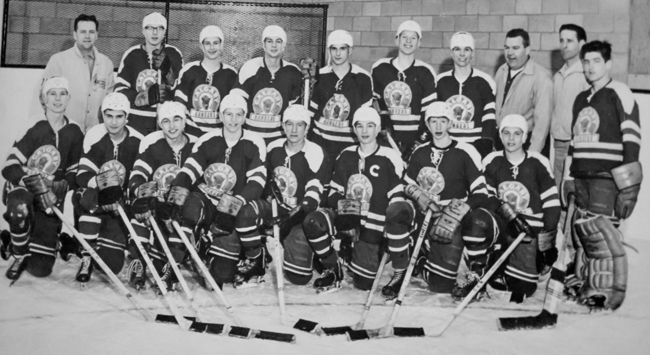
The day before the 2012 Boston Marathon, Phelps and Rita are in the elevator at their hotel.
In comes a woman, another runner. She sees a familiar face — yes, that’s the fellow that coached her brother once upon a time. Rita chuckles. “Hockey never lets you go. It just seemed funny — in Boston of all places.”
For the Phelps family, impromptu reunions are commonplace. At the mall. At a restaurant. A hockey game.
“The kids and I, we always laugh,” said Rita. “After 30-some years of coaching, there’s so many people.”
Which thrills Phelps, even now. Especially now.
“A year ago, I ran into a kid that played for me, (former NHLer) Craig Adams — ‘Coach, how are you?’ And a big handshake,” he said. “You left that guy with that (positive) feeling, that’s wonderful.
“The real reward is when you see them later in life and you know in some small way, without sounding arrogant, you made a difference.”
Regard for Adams — a Canuck for a single season, 1994-95, before departing for Harvard University — is unmistakable. His is the first name mentioned when Phelps is asked to single out his best-ever player.
“A mixture of ability and character,” he said. “If I was to say, ‘You’re like Craig Adams,’ that’s a huge compliment. He set the bar … work ethic, scholastically, as a team player. That would be the upper echelon.”
Given junior hockey’s demands — daily practices, three or four games per week, long bus rides — there is loads of opportunity for a coach to have an influence.
And those teenaged years can often be a crossroads.
“I could walk into that dressing room and I could sense, ‘Holy, Billy here’s got a problem,'” said Phelps. “I had kids — big, tough kids — sit in the dressing room by themselves and they’re crying. So you’d sit down and say, ‘OK, how am I going to help you? What are we going to do?’ They would spill their guts to me. The problems that we’d talk through? Every end of the spectrum.
“Yeah, we won a Centennial Cup. Yeah, we won an Air Canada Cup. But when I look at (team) pictures, I think, ‘He’s this. He’s a lawyer. He’s a doctor. He got a job. I kept him out of jail.’ Unless you’ve experienced it, you just can’t understand it.”
Over the years, Phelps’ fair-play approach got well-established — and often tested by his coaching cohorts during the gory days of the 1980s and ’90s. One-sided games always signalled trouble — the inevitable message sending. (“The message to me is that you shouldn’t be coaching.”)
Phelps remembers one skipper who couldn’t wait to deploy his hooligans, no matter what the score read.
“I don’t know how he could justify his role,” he said. “But he’s being paid, he’s doing it for a living. If he thinks gooning’s going to keep his job, he’s going to do it. That is just so wrong. I wouldn’t want to meet a kid that I coached 20 years earlier (and hear), ‘Thanks, Coach. You sent me out to goon three people.'”
Through varying degrees of on-ice peace, Phelps surpassed 1,500 games in the AJHL. After 2010-11, he allowed the ink to dry on a 832-581-106 record. (Gord Thibodeau registered his 833rd win in February 2017, easing into top spot on the league’s charts.)
In the end, citing the “logistics of work and family,” Phelps stepped down from his post. For the first time, the role had begun to feel unwieldy.
“It was never, ‘I’ve had enough of this.’ Absolutely not. I can never say that. I enjoyed it till the day I left,” he said. “I’ll be very honest with you, I miss it. I really, really miss it. It’s something you’ve done for most of your life. I miss always the relationships that I was able to maintain. I can’t say enough good things about coaching.”
Players and coaches, when asked mid-career about their accomplishments, invariably insist that stats and records and milestones are something to savour later — in retirement.
When the question of legacy is posed to Phelps, there is no hesitation.
“My survival in coaching,” he said. “Putting my values and philosophies ahead of wins and losses … I feel like I was rewarded for that time and time again. People always said to me, ‘Oh, you’re coaching the Canucks? What’s your record?’ That’s the first thing they ask you. Sometimes, I would like to have said, ‘Well, nine kids got NCAA scholarships, two kids went to SAIT, and another went to …’
“At the end of the day, that’s what I always felt good about.”

